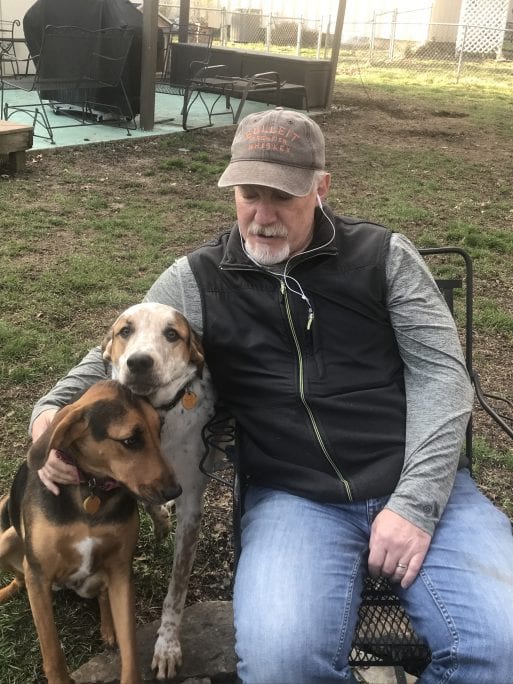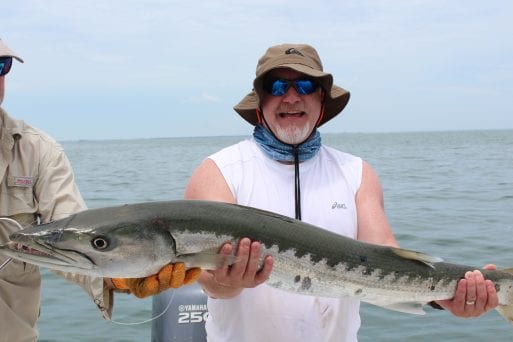 Dr. Brian Carter has always been interested in the ethics of medicine. Early on in his pediatric career, he became involved with bioethics committees that were seeking to improve the end-of-life experience for patients and their families. However, as a trained neonatologist, he realized there was a gap in this conversation. He asked himself, “If we can improve decision support and end-of-life care for adults, can’t we do that for kids?”
Dr. Brian Carter has always been interested in the ethics of medicine. Early on in his pediatric career, he became involved with bioethics committees that were seeking to improve the end-of-life experience for patients and their families. However, as a trained neonatologist, he realized there was a gap in this conversation. He asked himself, “If we can improve decision support and end-of-life care for adults, can’t we do that for kids?”
Neonatologists care for newborns, which means their practice revolves around birth and life — but also, sadly, around death. While many premature or ill newborns make full recoveries and enjoy lifelong health, the unfortunate reality is that, as with adults, some infants do not recover. While there is a growing range of resources to assist adult patients and their families in navigating the end-of-life experience, Dr. Carter saw that there was some reluctance in the medical field to address the experiences of critically ill newborns and their families. If death is taboo in our society, the death of a child — particularly an infant — is unspeakable. That leaves little in the way of guidance for those who must experience it.
Combining his pediatric expertise, bioethics background, and academic focus, Dr. Carter has become a pioneer in the small but growing field of neonatal palliative care. As a professor of pediatrics at University of Missouri-Kansas City and the co-director of the Pediatric Bioethics Certificate Course at Children’s Mercy Bioethics Center, Carter has worked to adapt the principles of palliative care to neonatal patients. This support and guidance can make all the difference in helping families navigate one of the most difficult experiences of their lives.
Editor’s note: This interview has been edited for length and clarity.
How did you first become interested in neonatal palliative care?
As a neonatologist, you’re never too far from the experience of death — babies that require neonatal care, whether they’re premature or have conditions such as sepsis or congenital heart disease, are all at risk for premature death. I became involved with Mildred Solomon’s work in enhancing end-of-life care for adults at the Education Development Center in Newton, Massachusetts. We worked with ethics committees to improve education, consultation, and decision support around the end of life experience. I realized there was a need for this kind of work in my own field, neonatology.
I’d observed that there was a standard approach to care for common diagnoses in infants, such as congenital heart defects or infections, and these standards had evolved into best practices. But when it came to the care of a dying newborn, it seemed as if no one felt comfortable addressing the improvement of this kind of care. When the reality of death isn’t addressed, there’s a tendency to just keep delivering the same kind of care — to “stay on the treatment train” until death is an absolute certainty. That can mean keeping the infant separated from the family and in an environment that’s not conducive to a kind and comfortable dying process.
What are some of the key differences in providing end of life care for an infant and their family, as opposed to an adult?
When an adult dies, they have had the opportunity to fulfill life’s offerings, to acquire experience, accomplishments and relationships, to reflect on his or her life. An adult’s death can be anticipated as a necessary part of the circle of life. A child’s death, however, is always unnatural, out of sync.
Beyond that, parents of dying newborns are forced to face a reality that is very disjointed from what they’ve anticipated. Parents typically go into the experience of pregnancy and childbirth with the expectation of a happy, meaningful experience, one that may be societally and culturally expected and also personally desired. There is an abrupt shift in expectations.
What are some of the barriers to providing neonatal palliative care?
In America, roughly 2.6 million adults die every year, and for the most part they die of about a half dozen common causes. With children, however — particularly newborns — the diagnoses can vary immensely. Because of this, and because infant deaths are so infrequent compared to adults, it’s hard for any one individual or institution to gain expertise at prognostication. So, there’s some reticence on the part of pediatricians and neonatologists to forecast a life-limiting condition as truly being fatal.
Intensivists, like other physicians, want to care for their patients throughout their patients’ lifespans. They don’t want to relinquish care unless it is absolutely necessary, and there has sometimes been a reluctance to “hand over” patients to palliative care when the prognosis is not definite. People want to be absolutely sure — but if you put off any conversation about end of life care until you’re absolutely sure, you’ve not done any great service to that child or his or her parents.
Fortunately, the perception of palliative care as being something that “takes patients away” from cure-focused care has changed in the last 20 years. Palliative care is often delivered concurrently with cure-focused care. Even for patients without definitively life-limiting prognoses, palliative care specialists can help manage unique pain symptoms and facilitate transitions out of the ICU to home or ward settings.
Why do you think there’s been an increase in neonatal palliative care services over the past few decades?
First, these services have proven their value in enhancing patient care and comfort. Palliative care helps parents accept the possibility of letting go and not persisting with treatment that is reducing the infant’s quality of life.
Nurses have also promoted neonatal palliative care, just as they have adult palliative care and clinical ethics. The family-centered care and attention to quality and safety that is delivered through palliative services is part of the best practices for any medical care system.

Dr. Carter with his two hound dogs.
The goal of a “good death” guides many adult palliative care decisions. How can this concept be adapted for infants and their families?
Realistically, it’s difficult to look at any infant death as a good one. Infant death is out of season, premature, unseemly, unnatural. But when a child has a condition that will lead to premature death, the task of the palliative care specialist is to help the family make decisions that will enable the best death possible under those conditions — the “least worst death.”
At all stages of a child’s life, pediatricians provide anticipatory guidance for parents, educating them on what to expect as their child develops. If you take that and put it into a palliative context, it means letting parents know what path their child’s illness may take, and what they may be confronted with at each stage. Families going through this experience often feel isolated and afraid, and palliative specialists can not only guide their anticipation but accompany them through the experience. When we fashion a practice that is humane and supportive, we can reach an outcome that could reasonably be considered a good death, under the circumstances.
What research or advances would you like to see in the field of neonatal palliative care?
I would like to see neonatal and perinatal palliative care becoming the norm in all neonatal ICUs around the country, with robust care teams. These teams can include not just palliative care providers, but other specialists such as psychologists who can speak with families and offer therapy. I’d also like to see adult-oriented hospices services gain competency in accommodating newborns who are discharged from hospitals into palliative care.
There’s room for improvement in how we communicate with patients and assist in decision-making, and also in our symptom scales and scores and our prognostic capability. As genetic testing capabilities continue to progress, we’ll be able make diagnoses very early on in life, and those advances will likely impact the need for palliative care.
How do neonatal palliative care workers manage the emotional intensity of their work?
First and foremost, by being open and sharing with each other on a regular basis, as in adult palliative care. Interdisciplinary team meetings, regular case conferences, supportive practices such as sharing poetry and spiritual words of wisdom, prayer, and spending time in contemplation can help build the cohesiveness of the care team and helps everyone lean on each other.
Learning together with parents is also a very valuable experience, and sometimes it’s the parents who are able to lend insight and help bolster us. We reflect on those positive stories, and on the opportunity to serve.

Dr. Carter with the catch of the day — a barracuda.
Besides parents and medical staff, is there anyone else who is important to incorporate into the palliative care process?
Just like with adult palliative care, an interdisciplinary team is important. Hospitals may draw on unit-based disciplines, or they may have interdisciplinary staff that are specific to the palliative care team. That means not just doctors and nurses, but staff such as therapists or child life specialists. A child life specialist is trained in child development and can engage with children through expressive experiences like stories, art and dance. This type of specialist can be very helpful in working with a patient’s siblings, who often have a lot of questions about what is happening to their newborn brother or sister.
Another important part of this picture is the patient’s grandparents. In the case of an infant death, grandparents are dealing with their own loss as well as grieving their child’s loss.
Is there anything else you’d like to share with our readers?
This is a topic that nobody wants to have to contend with, but parents and grandparents should be assured that there are many of us endeavoring to make sure that they never have to feel alone through this experience. There is hope for improving the care of the dying.

 Anticipation and Accompaniment: Guiding Families Through the Loss of an Infant
Anticipation and Accompaniment: Guiding Families Through the Loss of an Infant


 “Songbird” by Fleetwood Mac
“Songbird” by Fleetwood Mac
 First the Wealth Gap, Now the U.S. Has a Growing Health Gap
First the Wealth Gap, Now the U.S. Has a Growing Health Gap















